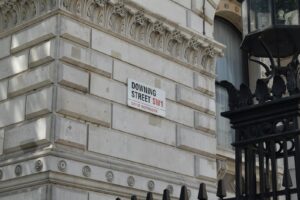Business rates putting unfair burden on high street shops
 The UK’s business rates system is ‘broken’ and places an unfair burden on high street businesses, according to a cross-party group of MPs.
The UK’s business rates system is ‘broken’ and places an unfair burden on high street businesses, according to a cross-party group of MPs.
A report by the Treasury select committee says the current system places a greater cost on high street shops than it does on online retailers.
The report claims that since business rates were introduced in their current form in 1990, the revenue they have generated has outpaced inflation, with them contributing £31 billion of Treasury income in 2018-19.
In particular, it says the current system acts as a ‘disincentive to investment’, as any investment in premises can lead to an immediate rate revaluation.
‘Businesses can face a dilemma when spending money to improve their property because it can lead to a higher rates bill,’ the report states.
‘This means that business rates can work against government policy to improve productivity, improve digital connectivity and encourage the use of more energy-efficient technology.
‘Because business rates are a property tax, rather than a tax based on profits, they take no account of whether a business is doing well or suffering from poor trading conditions,’ it adds.
The report also called on the government to prepare a consultation on possible alternatives in time for Spring Statement in 2020.
The select committee report comes after the District Councils Network warned the number of planning applications for new shops on Britain’s high streets has almost halved in five years.
‘It’s abundantly clear that the current business rates system is broken,’ said the committee’s lead member on the business rates inquiry, Alison McGovern.
‘The tax represents an increasing burden on businesses, particularly those with a physical high street presence struggling to remain competitive.
‘The government must ensure that business rates align with its aim to boost productivity and do not disincentivise growth. For example, many firms have moved away from being dependent on plants and machinery, which were last re-defined in the system in 1993.’
The chief executive of the trade body UKHospitality, Kate Nicholls welcomed the report and said the current system is ‘nowhere near flexible enough’ and it has directly contributed to the decline of high streets.
‘Hospitality businesses are at a particular disadvantage and have been arguably hammered worse than any other sector,’ said Ms Nicholls.
‘The current system penalises businesses who invest in their properties and actually acts as a deterrent to investment. We need a complete rethink of the system and an overhaul to bring it in line with the 21st Century.’
Photo Credit – Pexels (Pixabay)
















